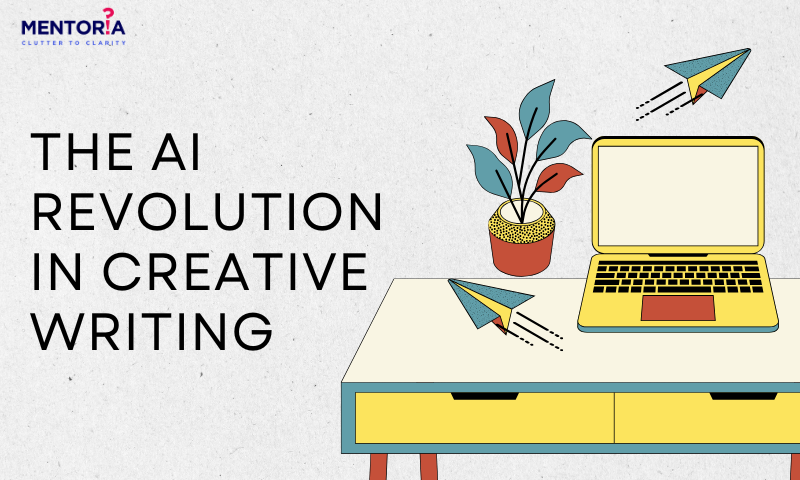The AI Revolution in Creative Writing

Writing, especially in creative domains like children’s literature and fiction, has traditionally been seen as a deeply human art, shaped by personal experiences, creativity, and emotional depth. But today, artificial intelligence (AI) is transforming many fields, including creative writing, presenting both challenges and opportunities for writers.
Recently, we hosted a session with a prominent author Sonia Mehta, where she discussed the balance between traditional methods and new technologies like AI. Sonia highlighted how the creative writing process is personal and subjective, influenced by feedback from readers and internal experiences. For example, she emphasises the importance of informal responses from readers, such as children asking, “Sonia aunty, when is the next book coming out?” This type of engagement, though not measurable like social media metrics, provides valuable feedback for a writer. AI, while powerful, cannot fully replicate these spontaneous, emotional exchanges between authors and their readers.
Want to learn more? Watch Mentoria’s webinar where leading experts discuss the future of creative writing and how technology will shape it.
AI and Writing Process
Artificial Intelligence is revolutionising the creative writing space, opening up new possibilities for writers while maintaining the importance of human creativity. AI tools like ChatGPT, Grammarly, and Jasper assist writers by enhancing grammar, tone, and structure. However, as technology advances, research says AI can move beyond basic assistance to more interactive and immersive writing experiences. Imagine AI systems helping writers craft “choose-your-own-adventure” stories where readers dictate the narrative’s direction. In future, AI could also analyse audience preferences and market trends to help writers develop stories that resonate with specific demographics. Platforms like OpenAI’s DALL·E are already exploring the intersection of text and visual storytelling, pushing creative boundaries further.
The Publishing Landscape and AI’s Impact
The publishing industry, as Sonia explains, is competitive, and while some writers get more credit than others, AI can help in levelling the playing field by offering self-publishing platforms, social media promotion, and even automated marketing techniques. However, even in the digital age, the cultural difference between how books are promoted in countries like the UK, where advertisements for books cover subways and billboards, contrasts sharply with other regions like India, where books rarely receive the same marketing attention as films.
Social media, when used effectively, can bring books to the reader, a space where AI algorithms play a significant role. AI can help discover and target audiences who might not have found certain books otherwise. Yet, in the end, as Sonia mentions with the example of Twinkle Khanna, an actor turned author, ”it is the quality of writing that ultimately speaks to audiences, despite any glamorous connections or AI-backed promotions”.
Conclusion: AI, A Supplement, Not a Replacement
As AI integrates into various aspects of the writing and publishing process, Sonia’s advice to aspiring writers remains timeless: “Read, read, read! Whether it’s fiction, thrillers, poetry, or even self-improvement books, reading is essential to develop your voice”. AI may suggest plots or edit texts, but it cannot replace the deep, conscious reading that teaches characterisation, description, and narrative structure. Writers who use AI tools still need to cultivate a habit of mindful reading and writing. Sonia highlights that writing is, at its core, an art form shaped by personal experiences and emotions. AI can assist, enhance, and offer support, but the heart of writing—the joy of telling a story—remains firmly in human hands.






